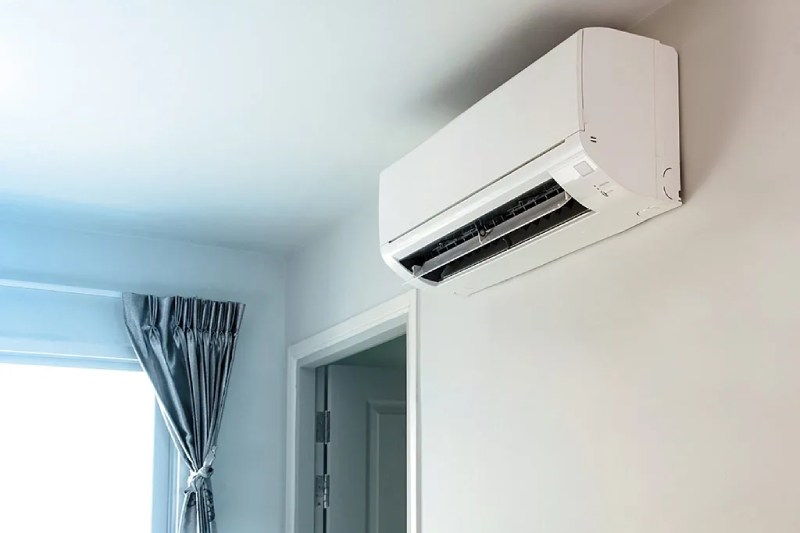Sleeping with an Air Conditioner On Can Cause 6 Health Problems

Heat waves make people more reliant on air conditioners
With severe heatwaves predicted in the near future, consumers will turn to air conditioners and cooling products. The increasing threat of heatwaves has caused semi-urban and rural communities to become more reliant on air conditioners (ACs). Even if sitting inside a room with an air conditioner on, as is most typical in homes and offices these days, can protect you from intense heat, there are certain health hazards involved.
While sleeping with air conditioning (AC) on might be comforting on hot and muggy evenings, improper usage of AC can also come with specific health hazards. The following six health problems could arise from sleeping with the air conditioner on:
1. The health of your lungs will be affected by AC exposure
Sleeping in a room with air conditioning on can cause respiratory issues, especially for people who are allergic to cold air or have asthma or other respiratory diseases already. The cold air that the air conditioner produces can irritate the respiratory system and result in symptoms including wheezing, chest tightness, coughing, and shortness of breath. Furthermore, if AC units are not properly maintained, they might circulate allergens and airborne pollutants, aggravating respiratory symptoms in those who are vulnerable.
Consider using a humidifier to bring moisture to the air, turning down the AC to a moderate setting, and routinely cleaning or replacing your air filters to help cut down on allergies and pollutants.
2. It may cause skin and eye dryness
Because air conditioning lowers humidity, sleeping in a room with an air conditioner on can cause dry skin and eyes. Dryness, itching, and flakiness can result from the AC’s chilly air removing moisture from the skin. Likewise, extended exposure to dry air can aggravate symptoms like redness, itching, and blurred vision by irritating and inflaming the eyes.
Consider using a humidifier to raise the room’s humidity levels, moisturizing your skin before bed, and hydrating your eyes as needed using lubricating eye drops to relieve dry skin and eyes.
3. It may worsen pain and stiffness in the muscles.
Joint discomfort and muscular stiffness can result from sleeping in a cold room with the air conditioning on, particularly if the body is exposed to low temperatures for an extended length of time. Muscles can stiffen and constrict in cold weather, resulting in pain and stiffness. Additionally, those who suffer from arthritis or other musculoskeletal disorders may find that chilly air exacerbates their joint pain and stiffness.
Consider turning down the air conditioning to a suitable temperature, layering clothing to be warm while you sleep, and doing some light stretching exercises to help you relax and become more flexible before bed to avoid joint and muscle pain and stiffness.
4. It may impair immunological function
Since cold air can impair immunity and increase susceptibility to bacterial and viral illnesses, sleeping in a room with air conditioning on may raise the risk of respiratory infections. Extended exposure to low temperatures can also narrow blood vessels in the upper respiratory tract and nasal passages, which weakens the body’s defenses against viruses and infections.
Maintaining a comfortable room temperature, washing hands frequently, avoiding close contact with sick people, and making sure the bedroom has adequate ventilation to reduce the spread of airborne pathogens are all recommended ways to lower the risk of respiratory infections.
5. It may cause sleep patterns to be disturbed
Sleeping in a room with an air conditioner on can cause sleep disturbances and low-quality sleep, especially if the air conditioner is noisy or the temperature is too low. Cold weather can be uncomfortable and wakeful during the night, and loud air conditioning units can interfere with sleep and keep people from going into deep, restorative sleep stages.
A suitable AC temperature, noise-cancelling headphones or white noise machines, and a regular sleep routine are all helpful in fostering peaceful slumber. Furthermore, stay away from stimulating activities and caffeine use close to bedtime since these can disrupt the start and quality of sleep.
6. It may make allergy symptoms worse
Sleeping with the air conditioner on can make allergies worse in those who are already susceptible to them. This is because poorly kept air conditioners can spread allergens including mildew, dust, pollen, and pet dander. Low humidity levels in air-conditioned rooms can also exacerbate symptoms like sneezing, congestion, runny nose, and itchy eyes by facilitating the buildup of allergens and airborne contaminants.
Consider installing a high-efficiency particle air filter in the air conditioning unit to trap allergens, changing or cleaning air filters on a regular basis to minimize exposure to allergens, and maintaining a dust- and pet-dander-free bedroom as ways to prevent allergy symptoms.